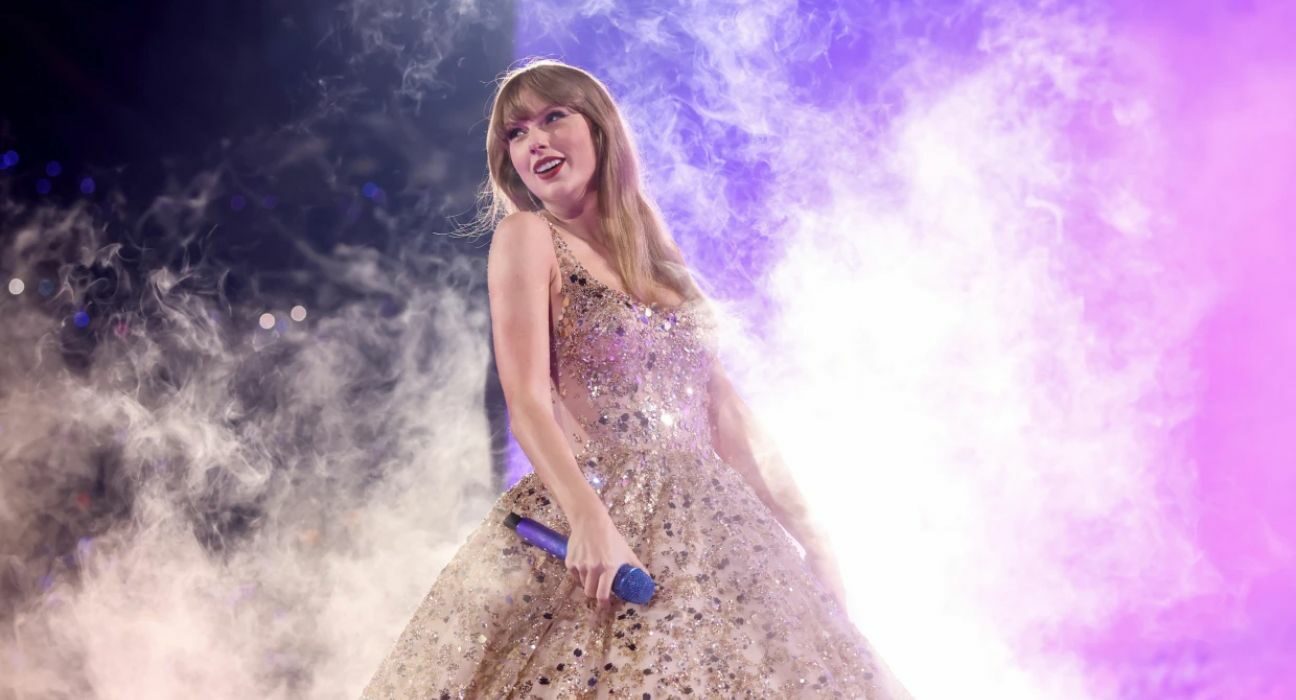Ever paid attention to the words ‘Taylor’s Version’ while listening to Swift’s songs? Well now you should, in fact you probably didn’t even see this coming. Take a closer look at the 2008 version of “Love Story” and the 2021 re-recorded version of the same song. Does it sound the same?
BeatCurry Team
Taylor’s re-recording expedition started in April 2021 with “Fearless (Taylor’s Version),” marking the first leg of her reimagined catalog. The following year in November, she unveiled “Red (Taylor’s Version),” On July 7, 2023, Swift reached midway with the release of “Speak Now (Taylor’s Version),” further solidifying her commitment. And most recently, on October 27, 2023, she gifted her fans with her rendition of 2014’s “1989”. The production and lyrics of the re-recorded albums remain largely unchanged, contrary to her business acumen. Well, why is her move of re-recording her albums making news amidst her on-going sold out ‘Eras Tour’, global screenings of her ‘concert tours’ and her exceptional music journey? Read to know more!
WHAT DOES IT MEAN TO OWN YOUR MASTERS?
In simple words, owning the masters of your song means having control over the recordings and being able to profit from its use. When a recording artist signs with a label, the label typically owns the masters of the recordings. This means that the artist gets paid a percentage of the revenue generated by the recordings, but they are not in control of them. Owning the masters of your song can be a great way to make money, but it also gives you the freedom to decide how your music is used. For example, you can license your music to be used in TV shows, movies, and commercials. You can also sell your masters outright, which can be a lucrative way to generate income.
Swift, uniquely skilled in both art and financial success, aims to maintain autonomy over her work—a challenging aspiration for any artist. However, Swift’s exceptional influence positions her as a potential trailblazer in redefining how artists can reclaim control over their compensation from industry influences.
WHAT EXACTLY HAPPENED? – THE BACKSTORY – A GLIMPSE
In 2005, the budding artist Taylor Swift inked a deal with Big Machine Records, setting the stage for her meteoric rise in the music scene. Fast forward to 2018, and Swift, now a global pop phenomenon, bid adieu to Big Machine as her contract expired, opting for a fresh start with Universal’s Republic Records. But here’s the twist: while she secured ownership of future masters in her new contract, Big Machine retained control of her first six albums.
Enter the plot twist: Swift pivoted to Universal’s Republic Records, ensuring that her future masters were firmly in her grip. However, the original recordings of her initial six albums remained in Big Machine’s clutches, a typical practice in the music biz. Big Machine still owned the masters, or original recordings, of her first six albums, as is typical to many recording deals. Details about Big Machine made it to front page news when the private equity group Ithaca Holdings acquired Big Machine for $330 million in the year 2019. Ithaca Holdings was an entity owned by the powerhouse music manager Scooter Braun.
Braun’s team valued the Swift catalog at $140 million when purchasing Big Machine Label Group. He then sold Taylor’s masters to a US-financial firm, Shamrock Capital for a reported $405 million in October 2020! The implication? Even today, if you play an old version of Swift’s early songs, you are filling Mr.Braun’s pockets, who has had no part at all to play in the record! Swift accused Braun of relentless bullying, and so she slammed the sale publicly and promised to re-record those original six albums, this time with the masters under her own control. In this musical chess match, it seems like Swift is ready to play her own tune.
THIS IS WHY TAYLOR IS RE-RECORDING HER ALBUMS.
Taylor Swift’s decision to re-record her albums stems from a strategic move to regain control over her own body of work. In a March 2021 Instagram post, she emphasized the importance of artists owning their creations, citing the artist’s unique understanding of their own body of work as a compelling reason. This move has sent ripples through the music industry, prompting a closer examination of the often opaque corporate dealings within. While artists commonly express discontent with their record label contracts, few go as far as Swift in the meticulous task of re-recording and re-releasing past work.
Swift’s approach is distinct; she had the luxury of time during the pandemic-induced hiatus from touring, allowing her to meticulously plan how her work is presented and received. From the visual aesthetics of album covers to her engagement with fan blogs on Tumblr, Swift is known for her attention to detail. In this venture, platforms like Spotify stand to benefit by supporting Swift’s new versions, given her unparalleled influence. Additionally, her devoted fan base, well-versed in her intentions, is likely to align with her wishes. Swift’s unique position in the industry enables her not only to challenge the status quo but also to wield the power needed to bring about meaningful change.
HOW ARE HER NEW RECORDINGS DIFFERENT?
Taylor Swift’s re-recordings, while maintaining fidelity to the original versions, incorporate subtle production updates and showcase the evolved maturity in her voice over the past decade. In addition to staying true to the originals, Swift introduces new tracks from her “vault,” featuring collaborations with artists like Maren Morris, Hayley Williams, and Patrick Stump.
What sets Swift’s “new” work apart is the underlying intention and the strategic moves that led to her ownership of it. Viewing musicians as business entities, akin to startups with limited equity to distribute among labels, publishers, and other stakeholders, Swift recognized the diminishing share artists receive as the business expands. Swift’s shift in labels was fueled by a desire for greater equity, ensuring that everyone involved in the artistic process reaps the benefits.
Contrary to her singer-songwriter image, Swift’s focus on financial intricacies reveals her business acumen. Despite her enchanting performances in fairy-tale-like settings, Swift recognizes the inherent vulnerability of artists, even those with formidable brands. Her insistence on a condition ensuring that profits from future Spotify shares sales return to artists highlights her commitment to protecting fellow creators from exploitation. Taylor Swift not only preserves her artistic integrity but also pioneers a path for artists to assert ownership in an industry often plagued by exploitation.
All information sourced from various media platforms purely for factual reporting purposes only.
Image courtesy: Getty Image: Scott Legato
Got a story to share? Looking to get featured? Write to us at hello@beatcurry.com
Related reviews and articles you’d like to see:
Subscribe to BeatCurry’s YouTube Channel here
Check out our Web Stories: Interesting scoops, trivia, stories, industry news delivered at your fingertips.
Watch: Exclusive interview with World’s Fastest Guitarist Davide Lo Surdo
Watch: Exclusive interview with GRAMMY awardee, Pt. Vishwa Mohan Bhatt
Exclusive Music Review: Mali Delivers An Ode To Each Broken, Hurt Heart Through ‘Ashes’
Exclusive Music Reviews: Mame Khan’s ‘Desert Rose’ Recites The Heartfelt Journey Of Life
Explore: #BeatCurryShorts NOW!
Explore: Check out the BeatCurry Podcast HERE!
If you’d like to know about the unique and versatile forms and flavors of music, follow us on Instagram, YouTube and Facebook, subscribe to BeatCurry.com and never miss another update from us.







